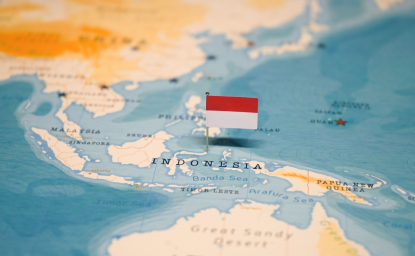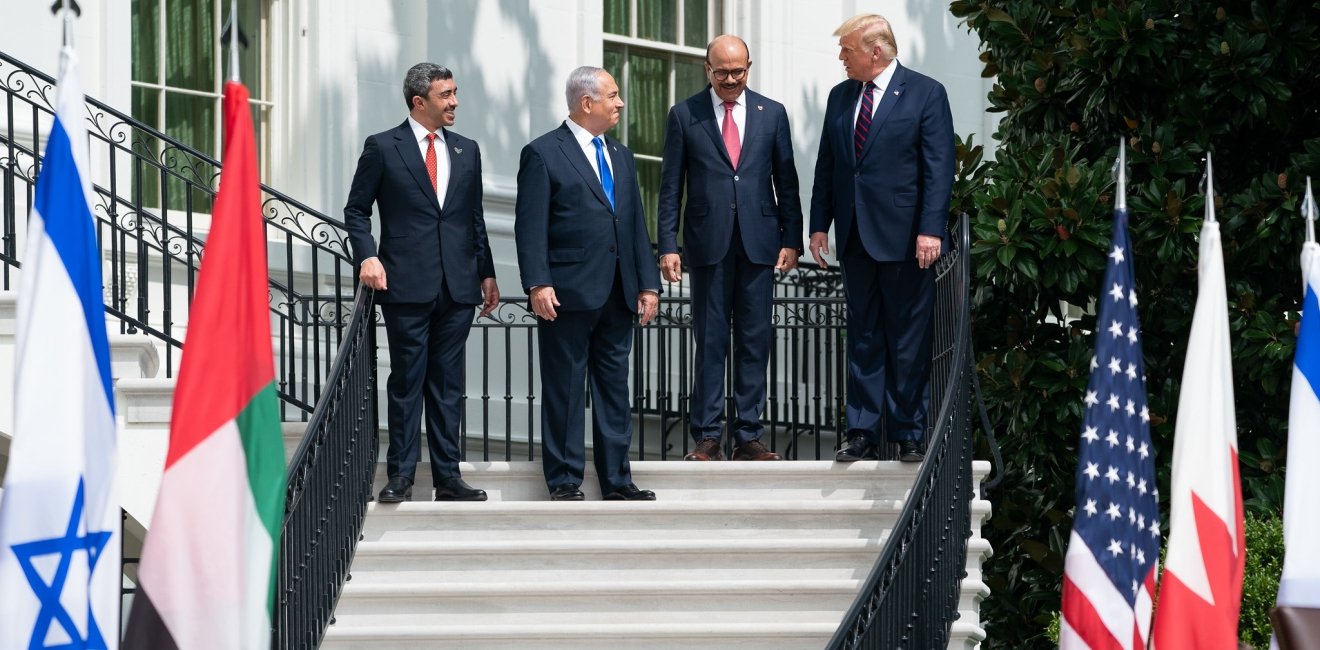Israel is making a breakthrough in normalizing relations with some of the Gulf Arab states and it is easy to see what the Jewish state is gaining from it—long-coveted Arab recognition of its existence and sovereignty. But what do the United Arab Emirates, Bahrain and perhaps eventually Oman and Saudi Arabia hope to get in return? The answer may well be a new security partner to replace, at least in part, a United States that is retreating from the Middle East.
The White House ceremony Tuesday hailing the decision of UAE and Bahrain to normalize relations with Israel (at President Trump’s insistence) glossed over this underlying geopolitical shift and the ensuing security challenges it poses for America’s Gulf Arab partners.
The most immediate change is the flagging political will in Washington to continue engaging America’s military might to defend the interests of its closest Gulf Arab partners.
It has not been lost on these partners which way the United States is headed in the region. President Trump has been talking about extracting the U.S. from “endless wars” there for years now, and his administration has begun the process of reducing the American military footprint in Iraq and Afghanistan. The United States will still have a string of bases, or access to military facilities, in all six of the Arab states facing Iran across the Persian Gulf and thousands of troops stationed in Kuwait and Qatar. And the U.S. Central Command (Centcom) will keep its forward regional headquarters at the Udeid Air Base in Qatar and the Navy will keep its Fifth Fleet base in Bahrain.
The most immediate change is the flagging political will in Washington to continue engaging America’s military might to defend the interests of its closest Gulf Arab partners. This trend in American foreign policy began under the Obama administration and has only accelerated under Trump’s. It seems unlikely to change if former Vice President Joe Biden wins the November presidential election.
The dramatic turning point in the Gulf Arab awakening to the implication of American disengagement came a year ago, on September 14, 2019, when more than twenty Iranian cruise missiles and drones smashed into Saudi Aramco oil facilities and knocked out half of the Kingdom’s oil production. Because Trump had constantly fulminated against Iran as the devil incarnate and forged a close relationship with Saudi leaders, the Saudis had reasonably expected some kind of U.S. retaliation. Instead, they heard the President make excuses for inaction by claiming that no U.S. interest was at stake in the Iranian attack on Saudi oil facilities.
Since that embarrassing moment of military nakedness, America’s Gulf partners have become reactive and started casting about for a more effective air defense system.
What he didn’t say was that the United States did not have the military capability to either detect or shoot down any of the Iranian missiles and drones before they reached their targets. Nor did the Saudis, despite spending billions of dollars on a U.S.-built air defense system.
Since that embarrassing moment of military nakedness, America’s Gulf partners have become reactive and started casting about for a more effective air defense system. France rushed radars and Shahine missiles to help beef up protection around Saudi oil facilities in the Eastern Province along the Gulf, and the United States sent troops and several Patriot missile air defense batteries. But neither the French nor American response has resolved the dilemma that Saudi Arabia, the UAE and Bahrain now face in order to protect their vital installations from another Iranian attack.
This military lacuna is making Israel far more attractive as a security partner and the waning support for the Palestinian cause among Gulf Arab states is making it far more acceptable. No one has started discussing substantially the security dimension of the Israeli-UAE normalization agreement except to mention that there is one. Attention has so far been focused on whether the agreement included a secret side-deal allowing the UAE to purchase the United States’ most advanced fighter jet, the F-35, which Saudi Arabia also wants to buy.
The crux of their problem now and in the future is confronting the proven threat of a successfully orchestrated Iranian attack with cruise missiles and drones on the vital installations of Gulf Arab states.
What then do the Israelis have to offer these exposed Gulf Arab states to enhance their security against Iran? The answer, it would seem, is a better air defense system against cruise missiles and drones. The crux of their problem now and in the future is confronting the proven threat of a successfully orchestrated Iranian attack with cruise missiles and drones on the vital installations of Gulf Arab states.
Israel has needed to cope with thousands of short-range homemade rockets, drones, kites, and artillery shells fired by Hamas militants from the Gaza Strip for years now. It had U.S. financial and technical help to develop the Arrow anti-ballistic missile and its Iron Dome all-weather air defense system to deal with them. Last October, Israel Aerospace Industries announced it had developed and upgraded its Barak-8 interceptor to deal specifically with cruise missiles and that the new Barak-MX System was now operational.
It is still hard to envisage Israeli soldiers stationed on UAE soil or invited in to defend Saudi Arabia, Islam’s birthplace and location of its holiest sites in Mecca and Medina. It seems entirely thinkable, however, that parts or all of the Israeli air defense system will before long, become part of the Gulf Arab landscape.
The views expressed in this article are those of the author and do not reflect an official position of the Wilson Center.
Author

Former Washington Post Middle East Correspondent

Middle East Program
The Wilson Center’s Middle East Program serves as a crucial resource for the policymaking community and beyond, providing analyses and research that helps inform US foreign policymaking, stimulates public debate, and expands knowledge about issues in the wider Middle East and North Africa (MENA) region. Read more

Explore More
Browse Insights & Analysis
The OSCE is a Good Value for America

Israel Escalates Attacks in Gaza: What’s Next?


